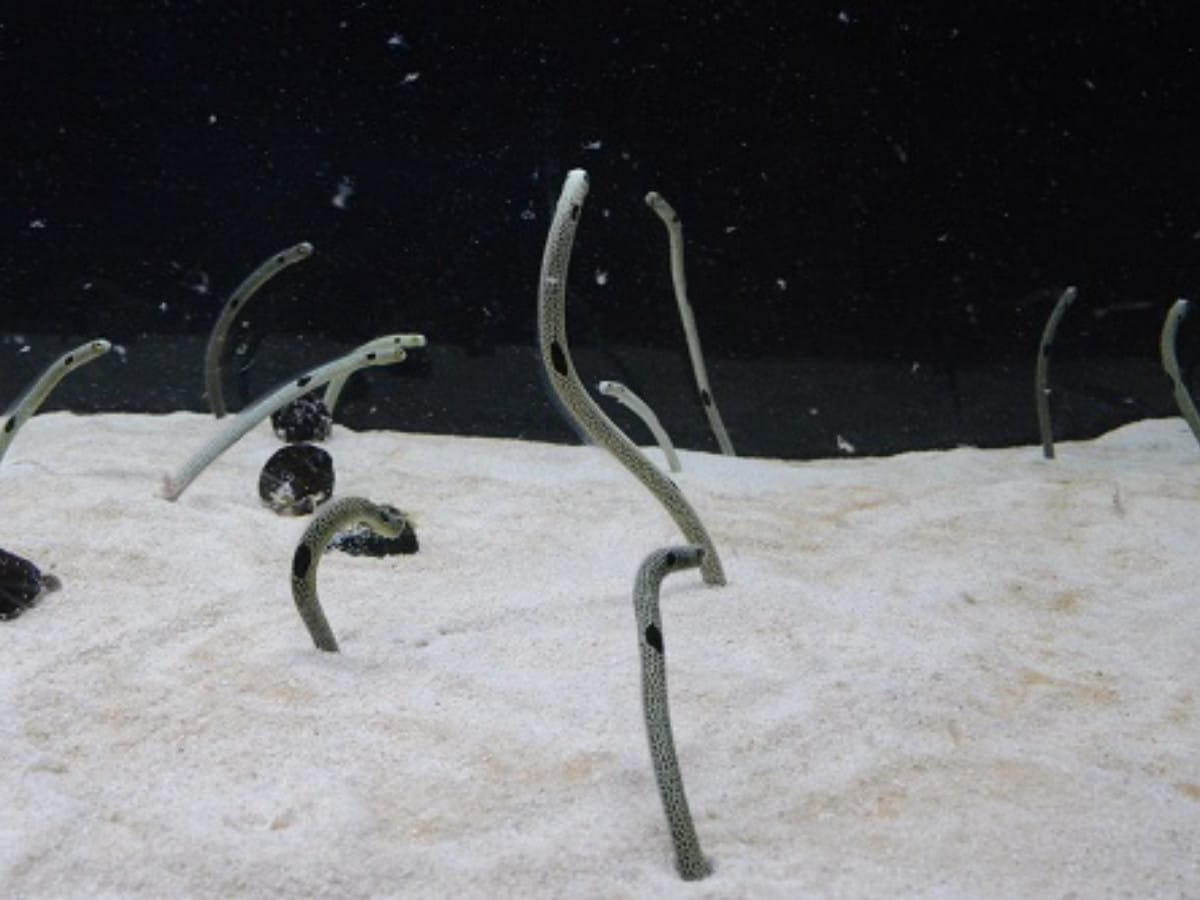
Source: © PR Times, Inc.
Spotted Eels at COVID-closed Sumida Aquarium Have Forgotten What Humans Look Like
- Tags:
- Aquarium / coronavirus / COVID-19 / Eel / spotted eel / Sumida Aquarium
Related Article
-

The difficulty of teleworking when you have cats
-

Stuck-at-home travelers turn to virtual trips during the summer months of the pandemic
-

Sanrio Puroland’s Heartwarming Message from Hello Kitty
-

Japanese maker mass produces lightweight and easy to assemble partitions for use at events
-

Japan’s corona-fighting monster Amabie makes a surprise appearance in a fireworks festival
-

Japan to Partially Lift Travel Ban


Everyone is having a hard time adjusting to the new normal of social distancing and on-again, off-again lockdowns during the current pandemic. We’ve touched on a few such situations here at grape Japan. We’ve covered married couples struggling to stay together, the trials and tribulations of delivery people, drugstore employees struggling with stressed-out customers, and beauty salon patrons resorting to giving themselves haircuts.
Despite all the agitation, it's beginning to look like the entire world is in it for the long haul. Although some jurisdictions are loosening lockdowns, and The President of the United States is for some idiotic reason advocating taking the potentially life-threatening hydroxychloroquine anti-malaria drug, others are looking to limit expectations. The director of the U.S. Centers for Disease Control and Prevention, for example, recently warned about the all-to-real possibility of a second wave of the virus.
With so much breaking news, headlines rarely focus on other members of the animal kingdom. Well, it seems animals, too, are feeling the effects of the ongoing lockdown. Addressing the issue, Sumida Aquarium in Tokyo took the unusual step of requesting patrons to help with a newfounded behavioral problem.
Spotted Garden Eels
Spotted garden eels are small fish widespread throughout the tropical and subtropical waters of the Indo Pacific, including the in the region south of Japan. As the name suggests, they have a long, eel-shaped body that is thin and tubular with a head that is approximately the same in diameter. Their bodies are white and spotted with small black spots, and they reach a maximum length of 40 cm.
Spotted garden eels live in colonies of various sizes in the sandy bottom of shallow oceans. They spend most of their lives burrowed, extending the majority of their lengthened bodies from their homes to catch drifting food. Garden eels do not leave their homes to mate, but rather extend their burrows during the breeding season towards partners in their vicinity. They release their fertilized eggs into the current whereby they hatch, and their offspring swim down to make their own burrows.
With such interesting behavior, spotted garden eels are a sight to behold. Larger colonies cover certain swaths of sandy ocean bottoms, and it is spellbinding to see them combing the current for passing food. Here's a good video showcasing the eels in their natural habitat.
Sumida Aquarium and The Face Showing Festival
Perhaps you can gather that, beautiful as they are, spotted garden eels can be a bit shy. For the staff at Sumida in Aquarium, this behavioral quirk is actually becoming quite a problem.
Like many tourist destinations during the era of COVID-19, the Sumida aquarium has been closed to the public. According to staff, the spotted garden eels have forgotten what human interaction feels like. Usually they are accustomed to patrons gawking over them. Acclimated, they commonly extend from their burrows, making themselves viewable to passersby.
Yet, the eels are naturally alert. Keeping an eye out for danger, they are quick to shoot back inside their burrows when threatened. A week or so following the aquariums March 1st closure, the spotted garden eels reverted to their natural behavior and began hiding whenever aquarium staff came to check on them. Although this type of behavior is typical in the wild, their shyness makes it difficult for staff to check on their health and overall well-being.
Seeking a lockdown-friendly way of addressing the newly developed problem, the staff came up with the idea of arranging video interactions between the eels and the public. They tweeted out an invitation and quickly received massive interest online. It seems that patrons on lockdown were feeling a little cooped-up themselves.
If the video conferencing works, perhaps the spotted eels will join the rest of us on Zoom.